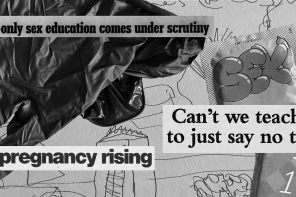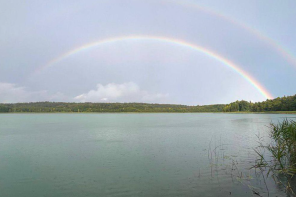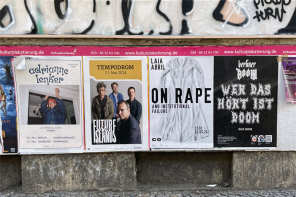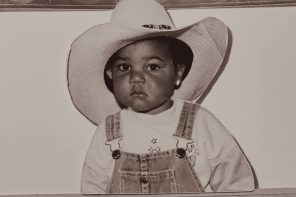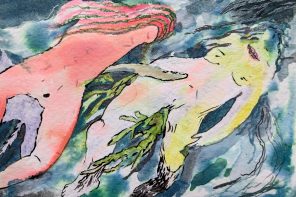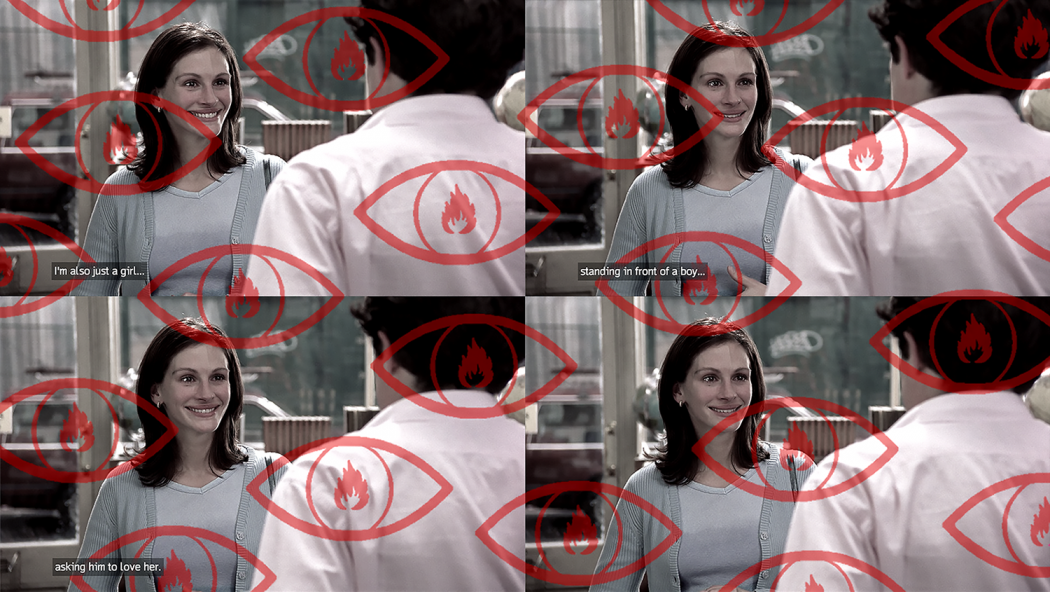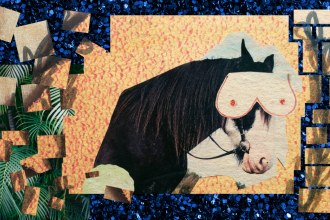Audio Transcription:
I.
Sex scares me because it requires me to trust that someone can treat me with respect, despite the ways society has robbed me of my self-regard. Right now, I’m at a stage in my relationship with fatphobia where I’ve started to believe that perhaps nothing is actually wrong with me. That I live in a world that both runs on and profits from violence and domination over bodies that look like mine. And ultimately, that this shame and its legacy should never be my personal burden to carry. I’ve been thinking lately about radical imagination, and whether the ability to see myself as sexy is where mine taps out. I know myself to be sexual. I have a sexual body. All Black women have sexual bodies. This is a social signification – a label hard to shrug. But I am also fat, and to be fat in this world is to be grotesquely neutered. I understood this about myself even when I had no language for it and even when I had no language for my sexuality.
But I’ve always touched myself. I remember separating my pubic hairs in the tub in South Africa, when I couldn’t have been older than 8. I remember saying “What? I have to make sure they aren’t tangled up,” when my older sister walked in and found me out. I remember masturbating some of the first times, going for a swim in our backyard in Accra in just a t-shirt and panties, standing in front of the jet that feeds water into the pool, placing my thighs on either side of that pressured column and my knees shaking below the surface of the rippling water. I would fix my eyes on a spot of the pebbled surface surrounding the pool and try my hardest to look disinterested while everything in me clenched and shook.
I remember getting wet for the first time from one of the Harlequin romance novels that my late Auntie Belinda gave to my mom in a beat-up cardboard box. I re-read those titles every year—The Duke’s Desire, Dryden’s Bride— stirring their old wantings. I remember understanding to some degree what it meant to be wet, though not really knowing how I got there. It’s the first time I ever dipped into any kind of ancestral knowledge. I knew, somehow, about womanhood.
II.
The other day, I was jolted awake by physically recoiling from a white man in my dreams. Which white man, who is to say. He may have been real, fictional, or composite but he was in the dream and though I did not recognize him, I recognized his positionality to me.
In the dream, he was crying and I know that I should allow men their wholeness which includes their sadness but when I think of white men crying I think of my ex. My ex who would get blackout drunk and rage-text me things like, “I know you want this relationship to be much more than it ever will be.” My ex who would show up at my house already crying and grab me around the waist and beg me not to leave him.
When I would get so weary that even he could see that I was done, he would vaguely threaten to hurt himself. Maybe it wasn’t that vague. I can’t remember the wording and I only ever remember speaking about it with the white woman, or rather one of the two white women I lived with off-campus my sophomore year of undergrad. I shared it like something salacious and exciting because I didn’t understand much of anything about mental health then. More than that, I took his threat as clear evidence of desire. His devotion was made legible by the negation of his life, and it excited me, to have clarity.
III.
I hate that I have to be grateful that all the sex I’ve had is consensual, but I am. My sex has been pleasurable, good even. In some ways, I’m at my best during sex. Insecurities that I obsess over disappear, because nothing makes me feel sexier than being wanted. Or maybe because I never truly believed the insecurities at all.
A friend told me the other day that she can’t count how many times she’s been sexually assaulted. It is something we’ve both known for years, and we probably mutually and imperceptibly ignored it because when we met, we’d been teens and girls – both states made less brutal by being selective about when to feel.
I recently read through comments on a manuscript I’d workshopped with a group of, primarily, white women. They all described my work as sexy or confrontational or both. I thought I was writing about desire, not sex. So, I spent an afternoon high on weed tincture, thinking about how I define the relationship between desire and sex. Does one presuppose the other, imply the other, or beget the other? I didn’t come up with an answer, but I did conclude that I relate to whiteness through negation and denial.
I thought about a white man I’d dated and how he would phantom-touch me, gliding his palms, slowly, right next to the parts of me he would never actually contact, tracing my silhouette. I was infatuated with the many ways he would invent to deny me. It was my kink, not to be undressed in his eyes, but to be erased. To be seen, out of sight in my swollen wanting and turned away.
I get frustrated with mainstream notions of consent because I feel that they negate how much sex is about negotiation. Or maybe how much sex with me is about negotiation. Or maybe that my desire is negotiation. That, when I get off, it is about sacrificing some part of myself. Sex as exchange: something for something. My shame for yours, and all my wantings too.
Words by Delali Ayivor
Header Image by Delali Ayivor and Kiona H. Niehaus
Delali Ayivor is a Ghanaian-American writer. As a contemporary postcolonial subject, Delali creates from the locus of disjuncture, writing through the complexifying tangles of our increasingly globalized world.
Currently, Delali is in the process of writing her first book-length project, an experimental cross-genre nonfiction project that explores her relationships with white men titled Consideration. Consideration includes an assemblage of poetry, prose, citation from personal correspondence and anthropological theory, as well as the odd screenshot from MTV’s reality-television programming roster.
Delali is a 2011 U.S. Presidential Scholar in the Arts, a former associate artist in residence with experimental sound poet Tracie Morris at Atlantic Center for the Arts in New Smyrna Beach, Florida, and an attendee of the 2019 Tin House Winter as well as 2020 Tin House Summer Workshops. In Spring 2019 she was named the inaugural writer-in-residence at the STONELEAF Retreat in Kingston, New York. Her work has been published most recently by The Rumpus. She currently lives and works in Brooklyn, New York.

